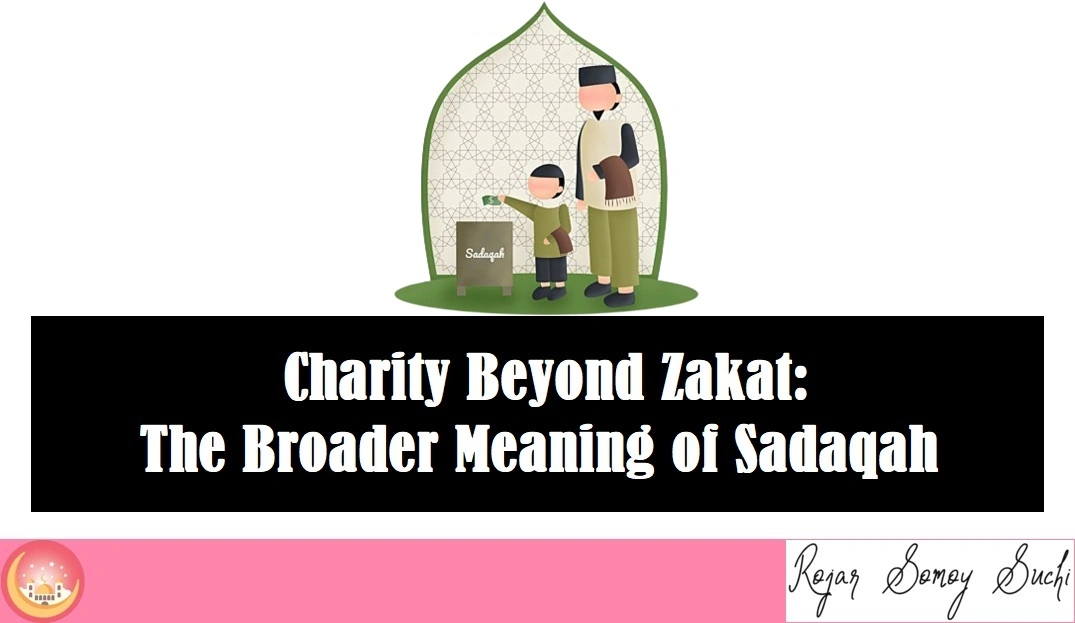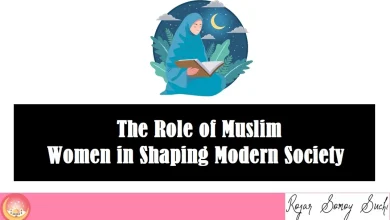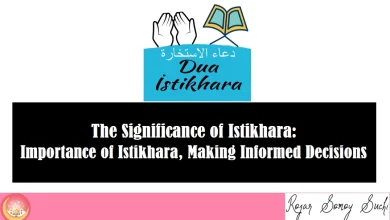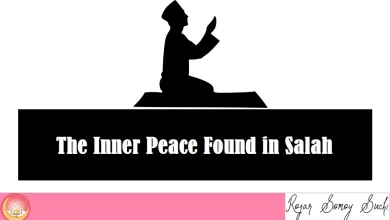
Charity Beyond Zakat: The Broader Meaning of Sadaqah: Charity holds a special place in every faith and culture, and in Islam, it is an integral part of a believer’s life. While Zakat is perhaps the most recognized form of Islamic charity, Sadaqah carries a broader and more encompassing significance. It transcends financial contributions and is deeply rooted in compassion, kindness, and the innate human responsibility to uplift others. Understanding and practicing Sadaqah beyond its conventional perceptions can transform not only the lives of recipients but also the hearts of givers.
What is Sadaqah?
Sadaqah, derived from the Arabic root “sidq” meaning “truth” or “sincerity,” signifies a voluntary act of giving. Unlike Zakat, which is an obligatory alms tax calculated annually on specific assets, Sadaqah is not limited by specific rules or amounts. It is an open, voluntary gesture, accessible to everyone regardless of their financial capacity. Sadaqah can be given at any time, in any amount, and in various forms—from a simple smile to a grand philanthropic act.
The Many Forms of Sadaqah
One of the most compelling aspects of Sadaqah is its flexibility. It extends far beyond monetary donations, encompassing any deed that benefits another living being. Here are a few examples:
- Words of kindness: Speaking gently, offering comfort, or advising someone wisely can be considered Sadaqah. Prophet Muhammad (peace be upon him) said, “A good word is charity” (Sahih Bukhari).
- Acts of service: Helping someone carry their belongings, guiding a lost traveler, or assisting a neighbor with their chores are all acts of Sadaqah.
- Environmental care: Planting a tree, preserving water, or protecting animals also qualifies as Sadaqah, emphasizing the interconnectedness of humanity with nature.
- Emotional support: Simply listening to someone’s concerns or being a source of encouragement can profoundly impact their well-being.
- These examples highlight the beauty of Sadaqah: it is universal, inclusive, and requires no wealth—only sincerity and effort.
The Broader Impacts of Sadaqah
Sadaqah is not merely a gesture of generosity; it is a transformative act with ripple effects that touch every aspect of life. Here are some ways in which Sadaqah impacts individuals and communities:
1. Fostering Compassion and Empathy
Giving in any form nurtures a deep sense of empathy. When you share your time, wealth, or kindness with others, you become more attuned to their struggles and joys. This empathy fosters unity and reduces divisions within communities, reminding us that humanity thrives on mutual support.
2. Strengthening Faith and Gratitude
Engaging in Sadaqah strengthens one’s relationship with Allah. It serves as a reminder of the blessings you’ve been given and encourages gratitude. When you give, you acknowledge that wealth and resources are entrusted to you by Allah for the betterment of society.
3. Creating Social Harmony
Sadaqah bridges gaps between different socio-economic groups, fostering understanding and cooperation. By sharing resources and acts of kindness, individuals contribute to a more equitable and harmonious society.
4. Personal Fulfillment
The act of giving brings profound joy and inner peace. Research has consistently shown that helping others activates reward centers in the brain, enhancing overall happiness and reducing stress. Islam’s emphasis on Sadaqah aligns beautifully with these findings, encouraging believers to give selflessly for spiritual and emotional enrichment.
Misconceptions About Sadaqah
Despite its broad definition, Sadaqah is often misunderstood as being synonymous with financial charity. This misconception can discourage those who lack financial means from engaging in charitable acts. However, the essence of Sadaqah lies in its accessibility. A smile, a prayer for someone, or even refraining from harming others can all count as Sadaqah. No act is too small; what matters is the intention behind it.
Another misconception is that Sadaqah is a secondary form of charity compared to Zakat. While Zakat is obligatory and specific, Sadaqah complements it by addressing a broader range of needs and circumstances. Together, they create a comprehensive framework for uplifting society.
Practical Steps to Embrace Sadaqah
Incorporating Sadaqah into daily life requires mindfulness and a sincere desire to contribute positively. Here are practical ways to embrace this broader meaning of charity:
- Practice Small Acts of Kindness Daily: Smile at strangers, hold the door open for someone, or lend a listening ear to a friend in need.
- Volunteer Your Time: Dedicate a few hours a week to community service, mentoring, or supporting local causes.
- Support Environmental Initiatives: Contribute to sustainability by planting trees, conserving water, or reducing waste.
- Be Present for Loved Ones: Offer emotional support to family and friends, and be a source of encouragement in their lives.
- Educate and Advocate: Share knowledge, inspire others to give, and promote awareness about social issues that require attention.
Conclusion
Sadaqah is a profound and all-encompassing expression of faith, humanity, and love. By expanding our understanding of charity beyond Zakat, we can unlock the true potential of Sadaqah and create a world filled with kindness, empathy, and solidarity. It is not the size of the act but the sincerity of the intention that counts. In a world often marked by challenges and divisions, Sadaqah reminds us that every small effort to spread goodness can have an immeasurable impact. Let us embrace the broader meaning of Sadaqah and make giving a lifelong habit—not just for others but for our own spiritual and emotional fulfillment.





